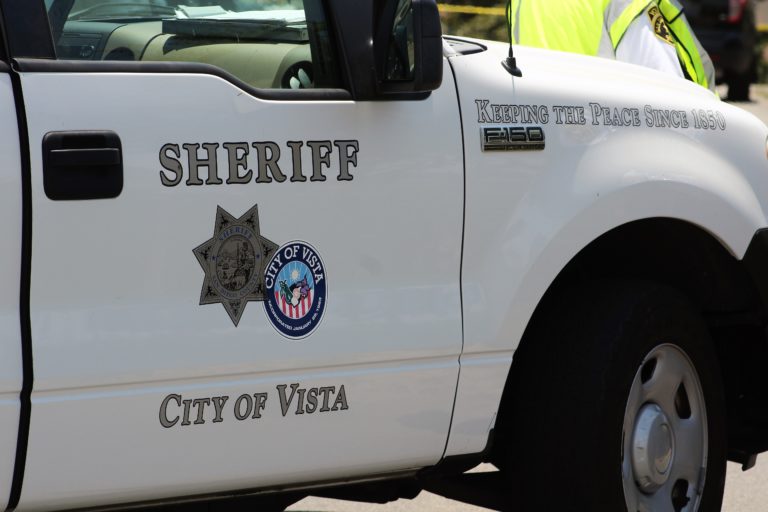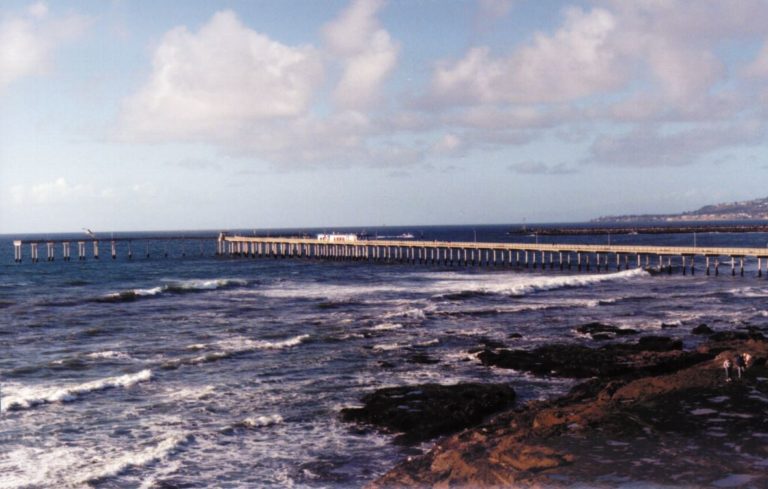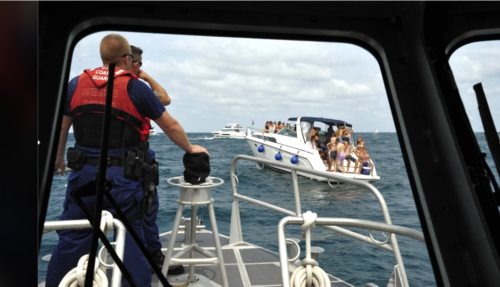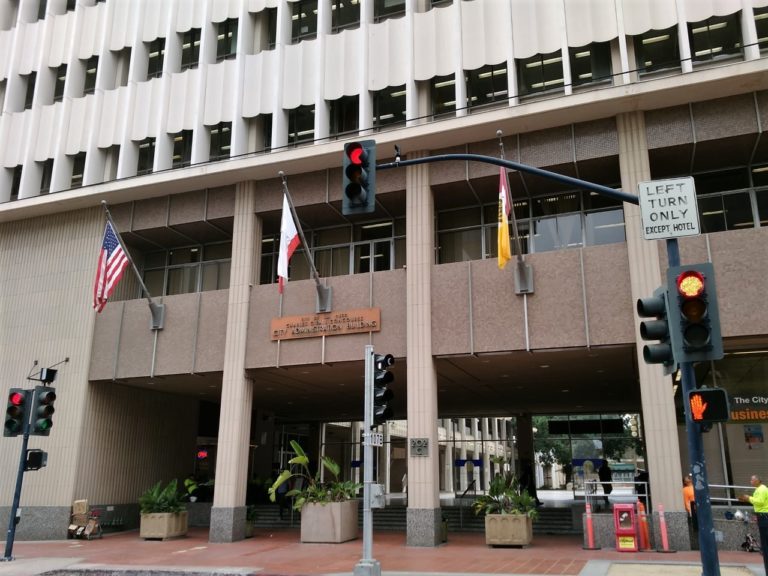GSA begins concrete paving project at Otay Mesa Land Port of Entry
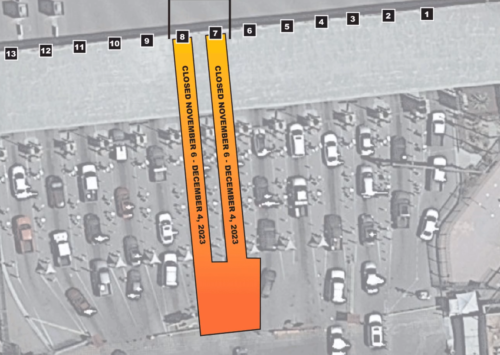
By SDCN Editor
San Diego, CA–The U.S. General Services Administration (GSA) Thursday morning started a concrete paving project at the Otay Mesa Land Port of Entry.
The asphalt currently covering the port vehicle queueing area suffers from cracks, potholes, and erosion from the thousands of vehicles crossing daily. The $1.85 million project, funded by the Bipartisan Infrastructure Law (BIL), would address those deficiencies. By using GSA’s low-embodied-carbon concrete standard, issued in March 2022, which when compared to the existing asphalt paving is more resilient to damage and erosion, the site will require less maintenance and roadway replacement. Building materials such as concrete are a large contributor to greenhouse gas emissions. Using low-embodied concrete reduces those emissions while providing for a better traveler experience.
The concrete paving work will be conducted in seven phases over six months, with two to three northbound non-commercial vehicle lanes being closed continuously for about a month to allow the concrete to cure completely before moving on to the next set of lanes. During most of the project, a maximum of two northbound lanes and their companion inspection booths will be closed, leaving at least 11 lanes and booths available for operations.
The schedule for the construction phases are:
- Phase 1 – Lanes 11 to 13 will be closed from August 24 to September 29
- Phase 2 – Lanes 9 and 10 will be closed from October 2 to November 3
- Phase 3 – Lanes 7 and 8 will be closed from November 6 to December 4
- Phase 4 – Lanes 5 and 6 will be closed from December 6, 2023, to January 5, 2024
- Phase 5 – Lanes 3 and 4 will be closed from January 8 to February 5, 2024
- Phase 6 – Lanes 1 and 2 will be closed from February 7 to March 1, 2024
- Phase 7 – Temporary rolling lane closures March 4 to 11, 2024
“This project goes beyond improving the traveling experience for the thousands of drivers who cross through the Otay Mesa port of entry. It underscores GSA’s commitment to sustainability, reducing the agency’s carbon footprint, and incorporating recycled and sustainably sourced building materials,” explained Dan Brown, Regional Commissioner for the GSA Public Buildings Service in the Pacific Rim Region. “BIL funds not only make the project possible but it will deliver an improved transportation infrastructure that will last longer, better protect the environment, and enhance the federal government’s mission at this port.”
GSA is responsible for constructing and maintaining LPOEs along the nation’s borders in partnership with and in support of the U.S. Department of Homeland Security – Customs and Border Protection and other federal inspection agencies. Through the BIL, GSA is modernizing LPOEs along the Canadian and Mexican borders.
Officials say the upgrades will strengthen supply chains, create jobs, enhance safety and security, and provide sustainable solutions to keep the ports operating efficiently and effectively for several years.

